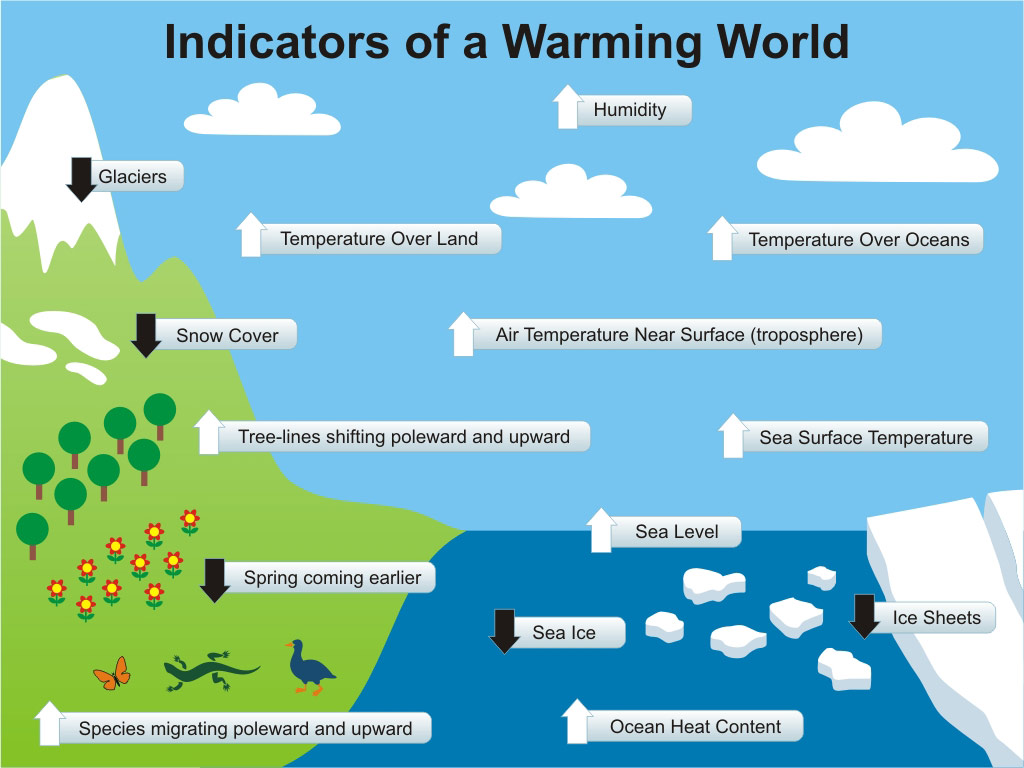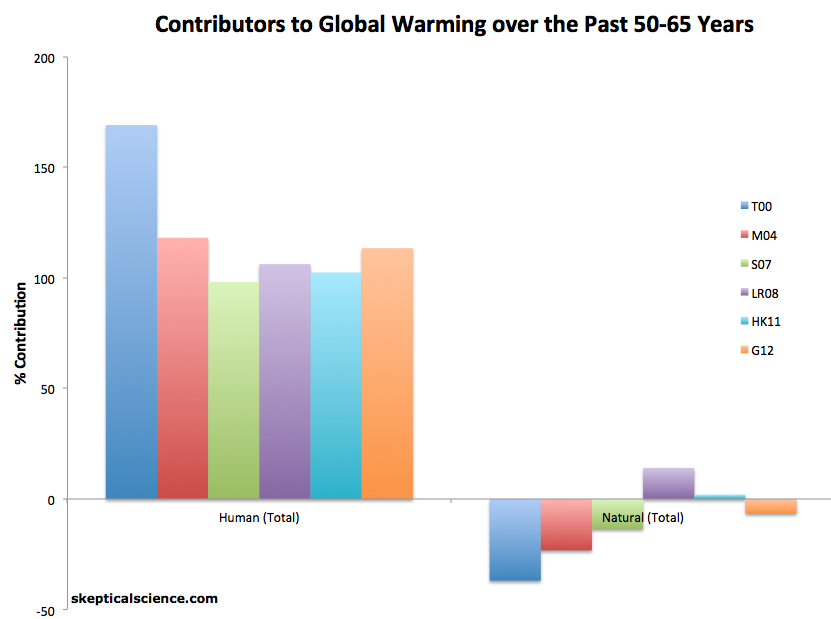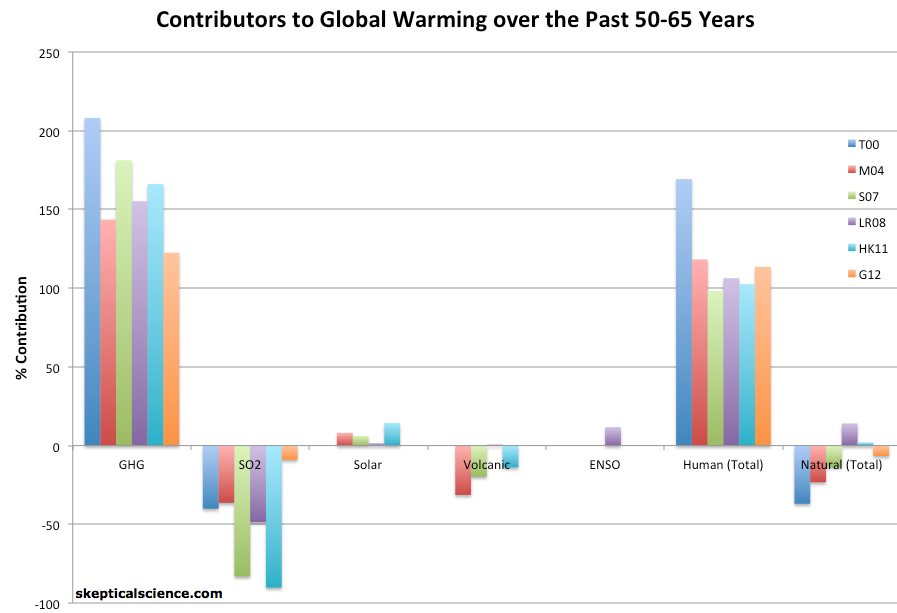PBS False Balance Hour - What's Up With That?
Posted on 20 September 2012 by dana1981
We have previously criticized the mainstream media for favoring false balance over factually accurate scientific reporting when it comes to climate change. In one of the worst examples of this unfortunate and counter-productive practice, the US Public Boadcasting Service (PBS), which is funded by both taxpayers and private donations, (for example, from the Koch brothers) aired a climate story on the PBS News Hour which began by featuring the Berkeley Earth Surface Temperature (BEST) project's Richard Muller, "balanced" with a subsequent interview of contrarian blogger Anthony Watts.
Ultimately, Watts' comments suffered from a double standard, dismissing Muller's comments as not yet being supported by peer-reviewed research, but offering his own opinions despite the fact that they were not only unsupported, but even contradicted by Watts' own peer-reviewed research.
Surface Temperature Record Accuracy
When asked to describe his 'skepticism' about human-caused global warming, Watts went into a long discussion about his concerns that encroachment of human development near surface temperature stations has introduced a bias into the temperature record. However, what Watts failed to mention is that the scientific groups who compile the surface temperature record put a great deal of effort into filtering out these sorts of biases.
Watts also failed to mention that there have been many peer-reviewed scientific studies investigating whether these efforts have been successful, and they have almost universally concluded that those extraneous influences on the temperature record have been removed. For example, Fall et al. (2011) concluded that for all temperature stations classifications with regards to the influence of urban influences, the long-term average global warming trend is the same.
"The lack of a substantial average temperature difference across classes, once the geographical distribution of stations is taken into account, is also consistent with the lack of significant trend differences in average temperatures....average temperature trends were statistically indistinguishable across classes."
The second author on Fall et al. is a fellow who goes by the name of Anthony Watts.
There are also of course many 'natural thermometers' confirming the warming of the globe - rapidly rising seas, melting sea ice, melting land ice, etc. (Figure 1).
Figure 1: Natural thermometers indicating a warming world.
Peer-Review Irony
When asked about the research of Muller and the BEST team, which has also confirmed the accuracy of the surface temperature record, Watts provided a very ironic response.
"Unfortunately he has not succeeded in terms of how science views, you know, a successful inquiry. His papers have not passed peer review."
Anthony Watts himself has co-authored two peer-reviewed scientific papers, one of which was the aforementioned Fall et al., which confirmed the accuracy of the surface temperature record with respect to the average global surface warming.
On his blog, Watts has attempted to defend his claims on PBS news hour by referencing a preliminary, unsubmitted, unpublished paper he has drafted which purports to identify problems in the temperature record. However, that preliminary paper contains numerous fundamental flaws which entirely negate its conclusions, and since it has not passed peer-review, according to Watts' own comments it is not "a successful inquiry."
So we have Watts dismissing Muller's comments because his research has not passed peer-review, and yet Watts' own comments contradict the results of his own peer-reviewed paper.
Global Warming Attributed to Humans
After agreeing that global warming exists, Watts shifted over to the myth "it's not us."
"...the ability to attribute the percentage of global warming to CO2 versus other man-made influences is still an open question."
This comment simply illustrates a lack of awareness of the body of peer-reviewed climate science literature. A number of studies using a variety of different statistical and physical approaches have investigated how much various factors have contributed to global warming. These studies have universally concluded that humans are responsible for close to 100% of the observed global surface warming over the past half century (Figure 2).
Figure 2: Net human and natural percent contributions to the observed global surface warming over the past 50-65 years according to Tett et al. 2000 (T00, dark blue), Meehl et al. 2004 (M04, red), Stone et al. 2007 (S07, green), Lean and Rind 2008 (LR08, purple), Huber and Knutti 2011 (HK11, light blue), and Gillett et al. 2012 (G12, orange).
There is a fairly large degree of uncertainty in these figures, primarily because the magnitude of the cooling effect from human aerosol emissions is not well known. However, the amount of warming caused by human greenhouse gas (GHG) emissions is known to a high degree of certainty, and these same studies have all found that GHGs are responsible for over 100% of the observed warming over this timeframe (Figure 3).
Figure 3: Percent contributions of various effects to the observed global surface warming over the past 50-65 years according to Tett et al. 2000 (T00, dark blue), Meehl et al. 2004 (M04, red), Stone et al. 2007 (S07, green), Lean and Rind 2008 (LR08, purple), Huber and Knutti 2011 (HK11, light blue), and Gillett et al. 2012 (G12, orange).
Political Tools
In claiming that climate science has become too politicized, Watts claimed
"some of the scientists who are the leaders in the issue have become for lack of a better word, political tools on the issue."
It is unclear to whom Watts refers here, since the few contrarian climate scientists like John Christy and Richard Lindzen have been trotted out before US Congress virtually every time a congressional committee has held a climate hearing. It seems unlikely that Watts would refer to his fellow climate contrarians in such unflattering terms, but they do seem to best fit his description as "political tools."
Watts on His Motives and Double Standards
At Skeptical Science it is against our site policy to speculate about a person's motives, but in this case, Watts volunteered the information.
SPENCER MICHELS: What's the thing that bothers you the most about people who say there's lots of global warming?
ANTHONY WATTS: They want to change policy. They want to apply taxes and these kinds of things may not be the actual solution for making a change to our society.
It is interesting that Watts responds to a question about a science-based opinion with a criticism about policy. For example, Watts is not most bothered that people are ignoring or unaware of the biases that he incorrectly believes exist in the temperature record. No, Watts is most bothered that we might implement an economically-beneficial carbon tax.
In another related piece of irony, Watts criticizes his opponents for using "scare tactics" and then claiming that if they get their way, it will mean economic catastrophe.
"Some people don't respond well to scare tactics and there have been some scare tactics used by some of the proponents on the other side of the issue....We can't just rip all that up or change it in the space off five, 10 or 15 years because it'll be catastrophic to our economy."
Watts Fails Risk Management 101
At the interview, Watts illustrates that he understands neither pragmatism nor risk management.
"I would call myself a pragmatic skeptic...I think that some of the issues have been oversold, may have been oversold, because they allow for more regulation to take place."
Pragmatism involves taking a practical approach to problem solving. In terms of climate change, there is no more practical approach than implementing a carbon pricing system so that the costs of climate change are reflected in the price of the products which cause them. Without knowing the climate costs of the products on the market, consumers cannot take those costs into account when making purchasing decisions. Yet this pragmatic approach is exactly the one which Anthony Watts most fears.
There are also two key words in the quote above - "I think." We know that Anthony Watts personally believes that the consequences of climate change will not be very bad. However, Watts' opinion is contradicted by the body of peer-reviewed scientific evidence. There is a very slim possibility that Watts and his fellow contrarians are right and the consequences of climate change will be manageable. However, when faced with the mere possibility of a catastrophic scenario, the proper risk management approach is to take steps to prevent that scenario from happening. In our case, catastrophe is not just possible, it is the most likely outcome if we continue in a business as usual scenario. It is in no way pragmatic to continue along this path.
Peer Review and False Media Balance
Ultimately Anthony Watts was correct to note that peer review is an important step in ensuring the accuracy of a scientific paper. It is fair to criticize Muller for publicizing the BEST team results prior to their acceptance in a peer reviewed journal.
However, if we apply that same standard to Anthony Watts, his sole scientific argument against human-caused global warming falls apart. Not only has the accuracy of the surface temperature record been confirmed by BEST and Watts' own Fall et al. (2011), but also by a number of other peer-reviewed papers such as Peterson et al. (2003) and Menne et al. (2010). If Watts believes these studies are flawed, he should attempt to demonstrate it in a peer-reviewed paper. Until he has accomplished this, by his own standards his argument is invalid.
It is also very concerning that PBS interviewed Watts to begin with. Watts only has one two peer-reviewed studies to his name, and they were not even mentioned in the interview. In fact, hiw own peer-reviewed research contradicts the main argument Watts made in the interview. The PBS interviewer also failed to challenge Watts' many incorrect and hypocritical statements, instead tossing him one softball question after another.
Apparently Watts was recommended for the interview by the Heartland Institute. PBS should obviously not be contacting a fossil fuel-funded global warming denying anti-science think tank which has previously compared climate realists to mass murderers for interview suggestions on a climate story. This also isn't the first time that PBS News Hour has consulted with the Heartland Institute to provide false balance for a climate story.
PBS has responded to criticisms of their News Hour piece here and here, essentially by saying that they have also interviewed climate scientists and done accurate reporting on climate change. While we applaud their more accurate and informative climate stories, it does not excuse the Heartland-consulted false balance in this particular piece. In fact, Michels admitted that he interviewed Watts to "hear more about the skeptical perspective," which is the very definition of false balance - presenting "the other side" for the sake of presenting it, regardless of its factual accuracy.
We do appreciate that Spencer Michels referenced Skeptical Science in his follow-up post and provided an explanation from the National Oceanic and Atmospheric Administration (NOAA) regarding how we know the temperature record is accurate (which referenced Menne et al. and Fall et al., as we did in the above post). In fact, this would have been useful information to include in the original PBS News Hour piece - perhaps an interview with NOAA scientists instead of a blogger. Instead, PBS sacrificed factually accurate scientific reporting for the sake of creating a false perception of balance.
Further Reading:
-
PBS NewsHour Falls Into “Balance” Trap, Provides Megaphone For Anthony Watts by Farron Cousins, DeSmog Blog
-
PBS NewsHour's Climate Change Report Raises Eyebrows (VIDEO) by Maes Gerken, HuffPost Green
-
PBS NewsHour Propagates Confusion On Climate Change by Shauna Theel, MediaMatters































 Arguments
Arguments

































[DB] "Sceptics do not deny the world has warmed, or that humans have impacted the climate."
Incorrect, as evidenced by the numerous rebutted skeptic memes on this very website.
When making assertions citing literature, it is considered good form to also cite an accompanying link to the selfsame research. Please do so.